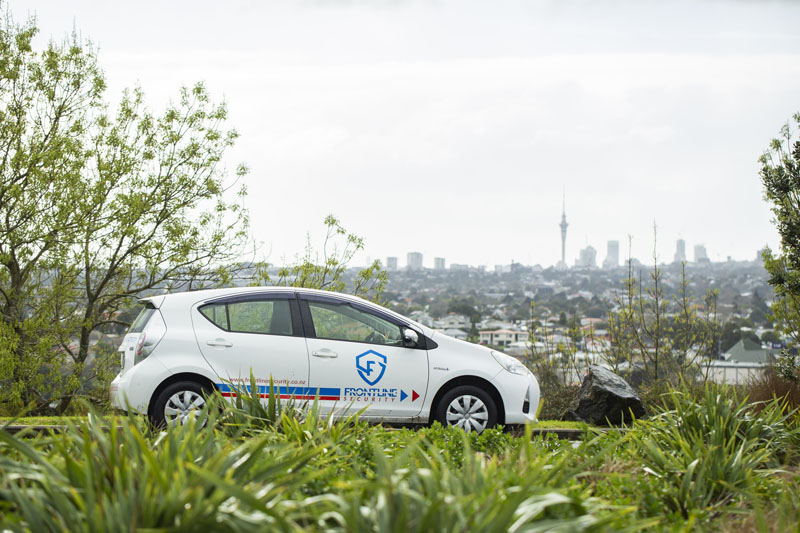A growing business needs to protect its assets, premises, and employees, making security a vital aspect of its growth. The best course of action depends on the scope and quality of services a company requires. Business owners should conduct an evaluation of security and develop a security program before deciding. When a company establishes a security department, one of the most frequent questions is whether to hire contract security companies NZ or bring security in-house.
Proprietary security
In proprietary security, a business assumes complete control over the ownership and management of its security detail. This implies that the members of the security team are workers for the company and that the company is responsible for managing and running the security operation on a day-to-day basis, as well as for training, certifying, and equipping security personnel and developing policies and procedures.
The significant advantage of using this strategy for a security organisation is its adaptability. The organisation has complete control over the security operation, allowing it to be tailored and shaped to suit its unique requirements perfectly.
Owning security operations allows a business to hire the best candidates, which is a significant benefit. When an employee arrives for work, they frequently see a security guard for the first time, and they see them again when they depart at the end of the day. Setting a favourable tone for employees depends on these encounters being positive.
Another advantage of keeping security in-house is controlling security rules and training. When a company controls the security operation, it has complete control over its run and can specify every aspect to suit its needs. A business may desire to have its security personnel trained for particular situations or to have security agents execute policies in a specific manner.
Controlling all hiring areas, compensation, perks, and regulations allows businesses to establish a genuinely good team atmosphere and culture aligned with its values. As a result, the security staff will see less turnover and more stability, as well as the organisation as a whole.
The expense of in-house security is a drawback, even though flexibility and control are excellent. All security staff are paid corporate employees and eligible for company perks. In addition, the business is responsible for paying for all hiring and training expenses and any equipment or other requirements for the team’s efficient operation. Smaller companies may find the cost of setting up and maintaining a security operation prohibitive. They might not be able to take advantage of economies of scale the way larger security organisations can.
Disputes may arise between staff and security team members, potentially putting businesses under challenging circumstances. Thanks to outsourced contract security, companies may more quickly and effectively settle these problems and conflicts without having to deal with difficult HR circumstances.

Contract security
Contract security is when a business enters into a legal agreement with a company from a different industry to provide security services. In addition to deploying perimeter security, checkpoints, and video surveillance to secure staff, customers, and company assets, contract security personnel also respond to alarms and assistance requests. By outsourcing these functions, a company can avoid the costs associated with hiring, vetting, and training security personnel and the administration and management overhead that a proprietary security force would necessitate. Security professionals are hired, trained, managed, and stationed at your sites by contract security companies, who also oversee the day-to-day efficiency of the security operation.
Contract security is typically less expensive than building an internal security staff from the beginning. This is because they have the added benefit of taking advantage of economies of scale when it comes to recruiting, preparing, and assigning security personnel. Additionally, they follow standard operating procedures for all their clients and businesses, lowering the cost of creating security systems. Contract security can almost always outbid proprietary protection on price thanks to these cost savings.
A further benefit of contract security is the transfer of the risk involved in enforcing security measures. Risk and associated liability are distributed when security services are outsourced. The security contractor is jointly responsible with the corporation for the acts of security personnel or claims of improper behaviour. This gives firm risk managers more time to focus on essential program areas like data security, audits, and fraudulent investigation. Security is inherently risky because staff members are responsible for preventing theft and loss and enforcing security regulations. Some businesses like outsourcing the legal and personal dangers of implementing these regulations.
Contract security businesses allow you to launch your security operation swiftly because they only focus on offering security services. Setting up an internal security team cannot match this pace of implementation.
The security personnel work for the contract security business, not for you. This indicates that the individuals admitted to and ejected from a company’s sites are entirely at the contract security company’s discretion. Companies may have some say in these choices, but they won’t have total control as they would in a case with proprietary security.
Under contract security, businesses typically have higher staff turnover, which implies that it is normal to continuously have new faces and new talent on companies’ security teams. Companies may want to avoid this churn’s instability and consistency occasionally.
Companies can personalise specific components of their security operation in a contract security situation, but most contract security organisations have standard operating protocols that they cannot adjust. This loss of operational control might not be acceptable to some businesses.

Takeaway
The security industry is a busy one. Every strategy for a company’s security operations has definite benefits and drawbacks. A business must assess what it values most in its security operations, deciding whether it prefers the advantages of an externally managed contract security agency or the flexibility of proprietary security staff. It is frequently necessary for security managers to supervise compliance with legal obligations relating to data security, financial or banking rules and regulations, internal loss investigations, and other issues.
The good news is that, in the end, both strategies will enable a business to move closer to its objective of safeguarding its employees, assets, and facilities. Contracting basic protective security services is an excellent relief in such circumstances. Some companies implement a hybrid approach to security, combining contracted services with crucial investigative tasks that are a component of in-house security operations.
We at Frontline Security are honoured to be recognized as one of the top security firms in New Zealand, proudly offering security services throughout the entire nation, especially in Auckland. We are prepared to assist you with anything you need, including security guard monitoring, mobile patrolling, alarm monitoring, and any size event security management. Working with our professional security guards will undoubtedly be your final step in security hiring. Look no further if you need the best security guards in New Zealand for any security-related issue. We’ll be happy to handle your security in Auckland and throughout New Zealand.

